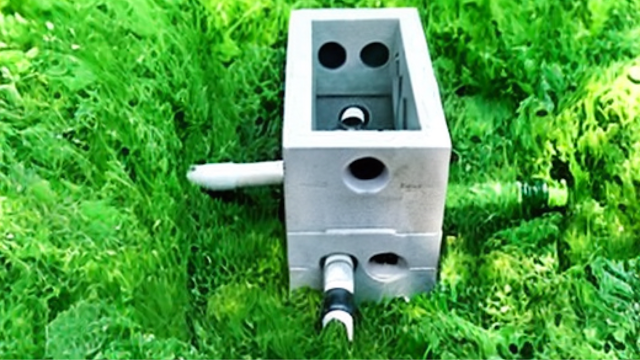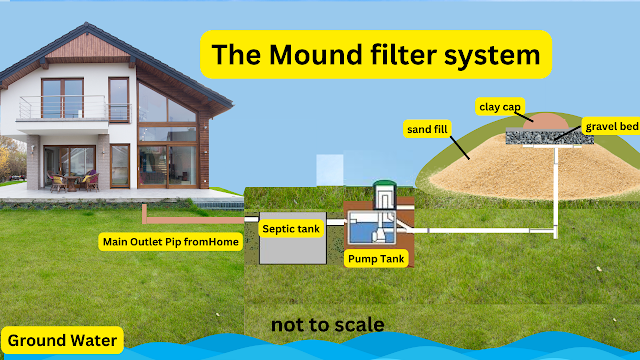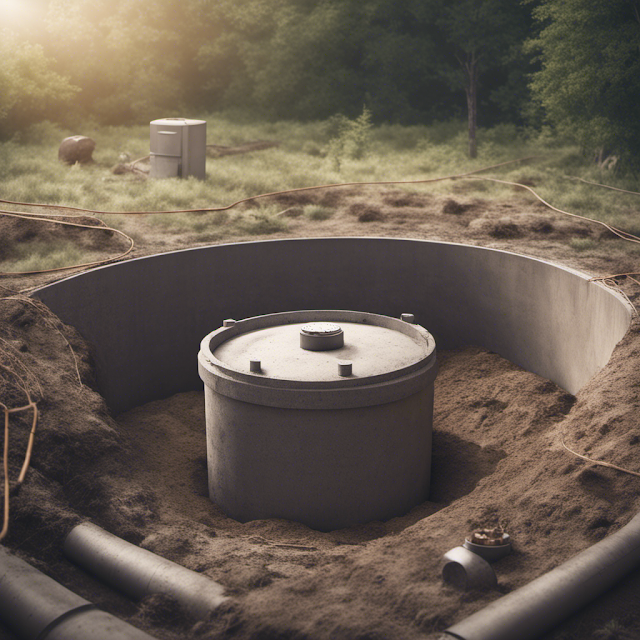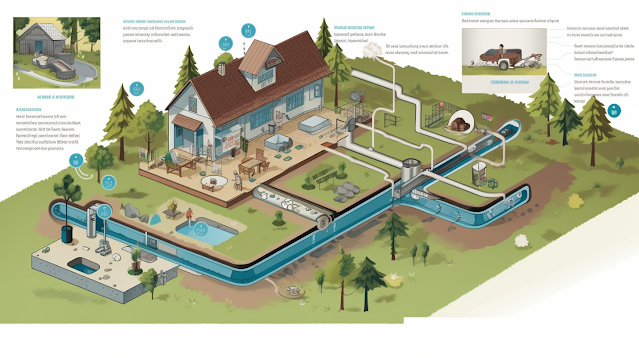Warnings
 |
| Septic Tank Warnings Protect Yourself from Poisonous Gases Here is our list of our Septic Tank Warnings Posts:
|
Septic Tank Warnings: Your One-Stop Guide for a Safe and Efficient System
Septic tank warnings are crucial for homeowners with these systems, and this is the place where you'll find all the information you need to keep your septic tank running smoothly. We cover a wide range of topics, including maintenance, safety, and troubleshooting, so buckle up and get ready to dive into the world of septic tanks. We will end with a real Septic Tank Warning though and potential threat to life.
With more than 40 years of hands-on experience in running a Septic Tank Company, we have faced countless scenarios and challenges in the industry. Our desire to share the invaluable insights we've gained over the years has inspired us to establish this blog, which aims to support both existing septic tank owners and those contemplating installing a new system. Join us on this adventure as we explore the realm of septic tank services, using our expertise to ensure your septic system experience is as seamless and trouble-free as possible, while emphasizing the importance of septic tank warnings to keep your system in top shape.
Know the Warning Signs: Recognizing Potential Septic Tank Issues
It's important to understand the septic tank warnings and signs that indicate your system might be in trouble. Being aware of these red flags can help you prevent costly damage or even hazardous situations. Here are some of the most common warning signs you should be aware of:
Slow drains or gurgling sounds in your plumbing
Sewage backups or foul odors in your home
Soggy or unusually green areas in your yard
High levels of nitrates or coliform bacteria in your well water
Maintenance Matters: How to Keep Your Septic Tank in Top Shape
Regular maintenance is key to avoiding septic tank warnings and ensuring your system functions properly. Our blog covers a variety of topics related to septic tank upkeep, from routine tasks like pumping and inspecting, to more advanced measures like effluent filter cleaning and replacing damaged components. By staying on top of maintenance, you can prevent major issues down the line and keep your system running efficiently.
When Disaster Strikes: Handling Septic Tank Emergencies
Despite our best efforts, septic tank emergencies can happen. Knowing how to respond to septic tank warnings and handle these crises is essential for minimizing damage and preventing health hazards. We'll walk you through the steps to take in case of a septic tank emergency, including how to safely shut down your system, assess the situation, and call in professional help when needed.
Septic Tank Myths Debunked: Separating Fact from Fiction
There's a lot of misinformation out there about septic tanks, and some of it can lead to costly mistakes. Our blog busts common myths and misconceptions surrounding septic tank warnings and system care, giving you accurate and reliable information to keep your septic tank in tip-top shape.
DIY or Call a Pro? Making the Right Choice for Your Septic Tank
Some septic tank warnings can be addressed with a bit of elbow grease and know-how, while others require the expertise of a professional. Our blog helps you determine which tasks you can handle on your own and when it's time to call in the experts. We'll also provide tips on finding a reputable septic tank professional in your area.
Be Septic Savvy: Understanding Septic Tank Regulations and Permits
Navigating the world of septic tank regulations can be tricky, but it's essential for homeowners to be informed. Our blog covers the ins and outs of septic tank warnings related to permits, inspections, and regulations, ensuring you stay compliant and avoid costly fines.
Stay in the Know: Keeping Up with Septic Tank Trends and Technologies
The world of septic tanks is constantly evolving, and staying informed about the latest trends and technologies can help you make the best decisions for your system. From new septic tank warnings and guidelines to innovative products and eco-friendly alternatives, our blog keeps you in the loop on all things septic tank.
Learn from Experience: Real-Life Septic Tank Stories and Lessons
Sometimes, the best way to learn is from the experiences of others. Our blog features real-life stories of homeowners who have faced septic tank warnings and challenges, sharing the lessons they've learned and offering valuable insights to help you avoid similar pitfalls
Ask the Experts: Your Septic Tank Questions Answered
Our blog is a treasure trove of information on septic tank warnings and care, but we understand that you may have specific questions unique to your situation. That's why we feature expert Q&As, where septic tank professionals address common queries and offer personalized advice to help you make the most informed decisions for your system.
Beyond the Tank: Caring for Your Entire Septic System
While the septic tank is a crucial component, it's only one part of your entire septic system. Our blog also explores other essential elements, such as drain fields, pipes, and pumps, providing comprehensive guidance on septic tank warnings and care for every aspect of your septic system.
Septic Tank Safety: Protecting Your Family and the Environment
A well-maintained septic system is not only essential for the health of your home but also for the well-being of your family and the environment. We'll help you recognize and address septic tank warnings related to safety, ensuring your system functions safely and efficiently while minimizing environmental impact.
Seasonal Septic Tank Tips: Adapting Your Maintenance Routine to the Weather
Your septic system may face unique challenges depending on the season, and our blog offers tailored advice to help you adapt your maintenance routine accordingly. From preparing your system for winter freezes to handling heavy rainfall in the spring, we'll provide timely tips to keep your septic tank in peak condition, regardless of the weather.
Saving Money with Septic Tank Efficiency: Tips for Reducing Costs
A well-maintained septic system can save you money in the long run by preventing costly repairs and extending the life of your system. Our blog shares practical tips for improving septic tank efficiency, helping you reduce costs while still addressing septic tank warnings and maintaining a safe, effective system.
A Breath of Caution: The Dangers of Poisonous Gases in Septic Tanks
When discussing septic tank warnings, it's crucial to address the potential hazards posed by poisonous gases. Septic systems naturally produce gases as a byproduct of the waste breakdown process. While most of these gases are harmless, some can be dangerous or even lethal when inhaled in high concentrations. Here, we shed light on the dangers of poisonous gases associated with septic tanks and how to protect yourself and your family from these risks.
Common Poisonous Gases in Septic Systems
The primary gases of concern in septic systems are hydrogen sulfide, methane, and carbon dioxide. Let's take a closer look at each of these:
Hydrogen sulfide (H2S): This toxic gas has a distinct rotten egg smell, making it relatively easy to detect. It's produced by bacteria during the decomposition of organic materials in the septic tank. In high concentrations, hydrogen sulfide can cause dizziness, headaches, respiratory issues, and even death.
Methane (CH4): Methane is a colorless, odorless gas that can be highly flammable or explosive when mixed with air. It's produced by anaerobic bacteria in the septic tank as they break down waste. Methane poses a significant risk of asphyxiation, as it displaces oxygen in enclosed spaces.
Carbon dioxide (CO2): Carbon dioxide is another colorless, odorless gas produced in septic systems. While it's not toxic in low concentrations, it can be dangerous in high amounts, causing dizziness, shortness of breath, and even asphyxiation.
How to Protect Yourself from Poisonous Gases
Being aware of septic tank warnings related to poisonous gases is essential, but it's also important to know how to protect yourself and your loved ones from these hazards:
Ventilation: Proper ventilation is key to preventing the buildup of dangerous gases. Your septic system should be designed with adequate venting to allow gases to escape into the atmosphere. Ensure that your vents are free of obstructions and functioning properly.
Regular inspections: Periodic inspections of your septic system can help identify potential issues related to gas buildup. Be sure to schedule professional inspections and address any problems promptly.
Avoid confined spaces: Never enter a confined space near your septic system, such as a small pump chamber or underground tank, without proper training and equipment. The risk of gas buildup and asphyxiation in these spaces is high.
Gas detectors: Installing gas detectors near your septic system can provide an added layer of protection, alerting you to the presence of dangerous gases before they reach hazardous levels.
By understanding the dangers of poisonous gases in septic systems and taking the necessary precautions, you can effectively address septic tank warnings related to gas hazards, keeping your family safe and your system functioning efficiently.
The Future of Septic Systems: Exploring New Possibilities
As technology advances and environmental concerns grow, the future of septic systems is ripe with potential. Our blog explores the cutting-edge developments in the world of septic tanks, from innovative materials and designs to eco-friendly alternatives that address septic tank warnings in a sustainable way.
By delving into the wealth of information available on our blog, you'll become well-versed in all aspects of septic tank care and safety. Armed with this knowledge, you'll be better equipped to recognize and address septic tank warnings, ensuring your system remains functional, efficient, and safe for years to come. So go ahead, explore our wide range of blog posts and become a septic tank expert!
Research and fact-checked:
https://www.rte.ie/news/2011/0831/305508-septictank/
https://www.eea.europa.eu/help/glossary/eea-glossary/septic-tank
https://en.wikipedia.org/wiki/Septic_tank
.png)



.png)






Comments
Post a Comment